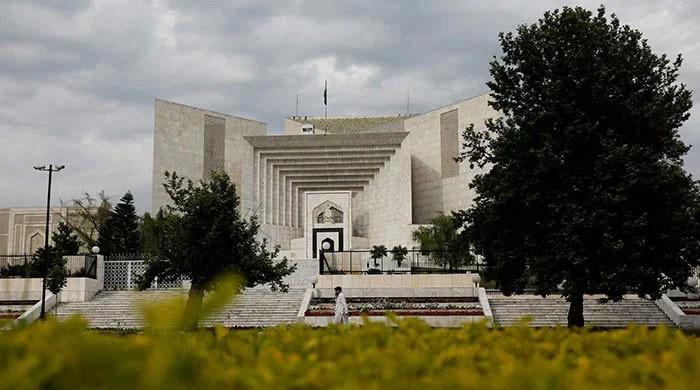Dr Aafia's federal lawsuit in US: Allegations of torture, sexual abuse, religious discrimination
Detailed 61-page lawsuit accuses prison staff of severe violations of her constitutional, human rights
November 23, 2024

- Dr Aafia Siddiqui files lawsuit alleging severe abuse
- Religious rights violations and medical neglect highlighted.
- Allegations highlights systemic issues within US prison.
Fort Worth, TEXAS: Dr Aafia Siddiqui, a Pakistani neuroscientist currently serving an 86-year sentence at the Federal Medical Center (FMC) Carswell in Fort Worth, Texas, has filed a comprehensive federal lawsuit against the US government, the Federal Bureau of Prisons, and several prison officials.
This detailed 61-page lawsuit, filed nearly two months ago in the US District Court for the Northern District of Texas, a copy of which has been obtained by Geo News, accuses prison staff of severe violations of her constitutional and human rights.
The allegations include sexual abuse, torture, denial of medical care, and religious discrimination.
Allegations of severe abuse
The complaint, filed by attorneys Naim Haroon Sakhia, Maria Kari, and Clive Stafford Smith, provides a harrowing account of Siddiqui’s alleged mistreatment.
According to the complaint, Siddiqui has endured repeated sexual assaults and physical abuse by prison staff and fellow inmates since her incarceration at FMC Carswell in 2010.
The complaint claims that these acts were not isolated incidents but part of a systemic culture of abuse within the facility.
Siddiqui alleges that male guards, including officers named in the complaint, subjected her to rape and sexual harassment, often under the guise of routine checks.
The complaint also describes an incident where Siddiqui was allegedly doused with a burning, acidic liquid by prison staff in retaliation for reporting her abuse.
Denial of religious freedom
A significant portion of the lawsuit focuses on Siddiqui’s inability to practice her religion freely. As a devout Muslim, Siddiqui has repeatedly requested access to an Imam for spiritual guidance.
Despite her legal team’s efforts to arrange visits with prominent local Imams, including Omar Suleiman and Asif Hirani, these requests have been consistently ignored or delayed by FMC Carswell staff.
The lawsuit cites multiple instances where Siddiqui’s religious rights were violated, including male officers watching her during private moments, forcing her to strip, and confiscating religious items.
Siddiqui has also been unable to participate in Friday prayers, a fundamental aspect of her faith, for over a decade.
Failure of medical care
The complaint highlights the inadequate medical treatment Siddiqui has received, despite her documented PTSD and physical ailments stemming from alleged torture in US.custody prior to her trial.
Her attorneys argue that the prison’s failure to address her severe trauma and physical injuries, including hearing loss and dental issues, constitutes a violation of her Eighth Amendment rights.
Systemic issues at FMC Carswell
The lawsuit situates Siddiqui’s allegations within a broader pattern of misconduct at FMC Carswell. Reports from human rights organisations and previous lawsuits reveal widespread sexual abuse of female inmates.
A 2022 investigation by the Fort Worth Star-Telegram uncovered numerous incidents of sexual misconduct by prison staff, many of which were covered up or inadequately addressed.
The complaint names several high-ranking officials, including Bureau of Prisons Director Colette Peters and FMC Carswell Warden Michael Smith, alleging their deliberate indifference to Siddiqui’s suffering and failure to protect her.
Legal demands and international implications
Siddiqui’s legal team is demanding a jury trial, seeking declaratory and injunctive relief. They request a third-party investigation into the abuses, immediate action to protect Siddiqui, and improved access to religious counsel and independent medical care.
This case has garnered significant international attention, with the Pakistani government repeatedly calling for Siddiqui’s repatriation.
Her family and supporters, including human rights activists, view the lawsuit as a critical step in holding US authorities accountable for her alleged mistreatment.
Attorney statements
Speaking on the case, attorney Sakhia said: “Dr Siddiqui has alleged unimaginable suffering for years, and her plight is a stark reminder of the systemic issues plaguing our prison system.”
Kari added, “This lawsuit seeks justice not only for Dr Siddiqui but for countless other women who have suffered in silence.”
Smith emphasised the international implications of the case, noting: “It is crucial for the United States to uphold its commitment to human rights, particularly when the world is watching.”
The US Bureau of Prisons has yet to comment on the pending litigation.











